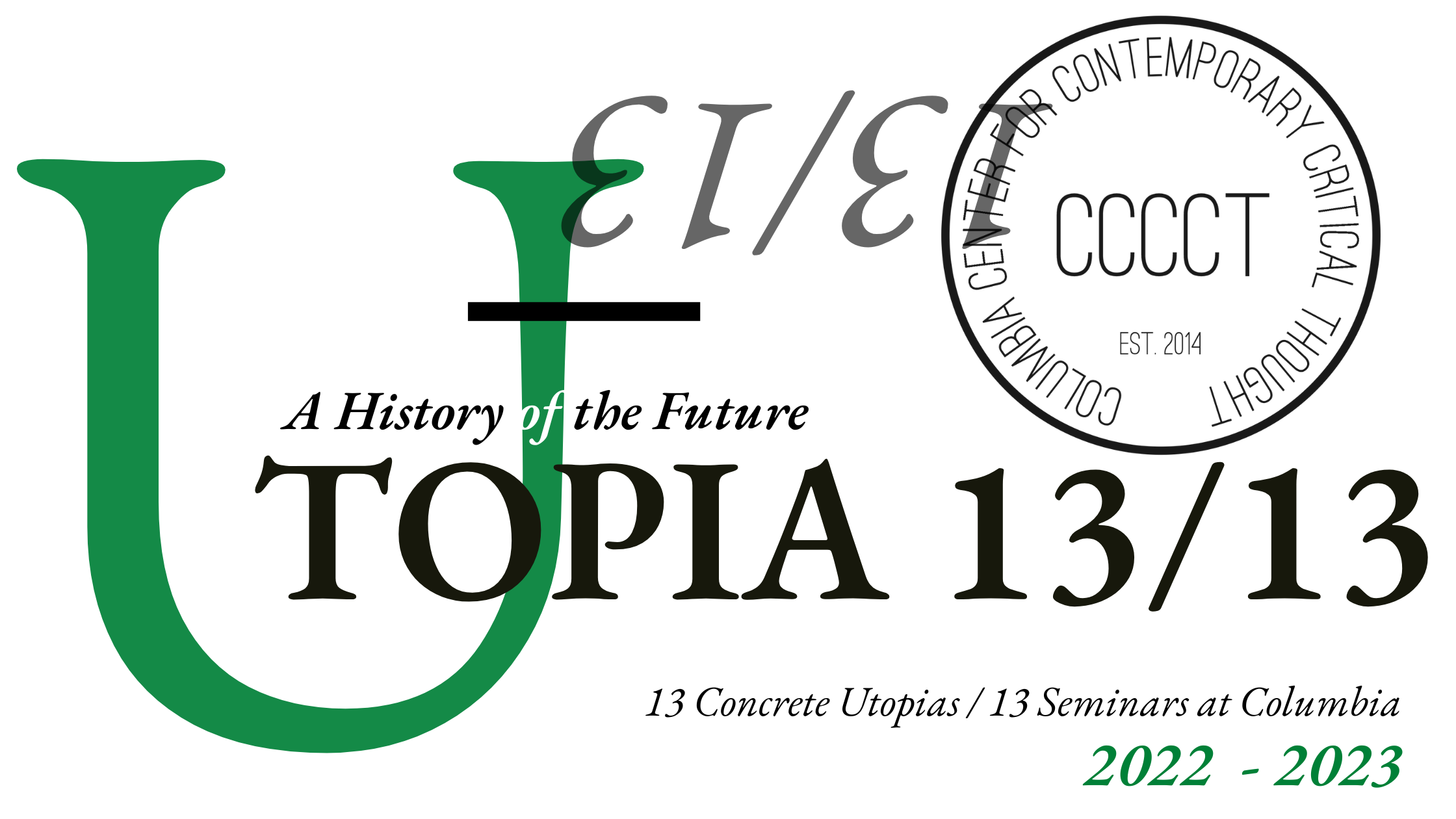Frederic Bosquet, Françoise Gollain, Télémaque Masson-Récipon, Alex Robin, Clara Ruault, and Bernard E. Harcourt
discuss the history and theory of the “Degrowth” and political ecology movements, the life and work of André Gorz, and the praxis of degrowth
with representatives from the Longo Maï and TERA eco cooperatives
at the Librairie Utopia, part of the Mouvement Utopia, in Paris, France
Wednesday, November 9, 2022
André Gorz first used the term “décroissance” (degrowth) in 1972 as a hypothesis in an international conference he had organized in Paris, and it sowed an idea. It was picked up in 2004 (not long before Gorz’s death in 2007) by the main movement of anti-advertising and anti-consumerism campaigners in France, as a “punch word” (un mot coup-de-poing) title for their activist newspaper. From there it quickly became a polarizing slogan and the name of a large and diverse movement, many of whose members recognize Gorz as an intellectual forebearer. One point of agreement within the movement is denouncing the fetishization of GDP growth by the vast majority of governments and economists, be they neoclassical or socialist, because it does not constitute a valid measure of welfare and often occludes detrimental costs to society.
A number of political philosophers and heterodox economists developed theories and strategies of degrowth, or “anti-growth,” or “steady-state economics,” putting forth concepts such as that of prosperity without growth, “sobriété heureuse” (blissfull sobriety) or Buen Vivir. These include economists following in the footsteps of Schumpeter’s protégé Nicholas Georgescu-Roegen in the United States, as well as thinkers like Baptiste Mylondo and Serge Latouche in France, Giorgios Kallis in Greece, or Christian Kerschner in Austria. In a recent manifesto titled Degrowth, Kallis explains that it is possible to vastly shrink consumption and resource depletion on Earth without having to sacrifice well-being: “It is possible to have meaningful employment and secure well-being with much less through-put and output than is found in wealthy countries today,” Kallis writes.
The degrowth movement emphasizes the need for radical redistribution of resources and a shift in values. The problems they identify include both the excessive use of resources and their unjust distribution. Some of the strategies range from UBI to forms of cooperative work and living, to ZADs and squats, and other forms of political disobedience.
To explore these ideas and praxis, we are delighted to welcome to Utopia 4/13, at the Librairie Utopia in the fifth arrondissement of Paris a brilliant panel of thinkers and actors: Françoise Gollain , the foremost expert scholar of André Gorz’s intellectual writings, author of his reference intellectual biography André Gorz, une philosophie de l’émancipation(L’Harmattan, 2018), as well as of an excellent short general introduction to his theories André Gorz pour une pensée de l’écosocialisme (Le Passager Clandestin, 2014); Clara Ruault, another brilliant scholar of Gorz’s thought, who edited the volume on Gorz-Marcuse and joins us from Columbia University; Frederic Bosquet, one of the main instigators and cooperators of the TERA eco-village project, with a long career in Social and Solidarity Economy, managing cooperatives and participating in different ways to the transition our societies to more sustainable and just ways of functioning; Alex Robin, a member of the Longo Maï cooperatives since 1974 and the founder of Radio Zinzine, a non-commercial, self governed, anarchist radio station in France; and Télémaque Masson-Récipon, a doctoral student at the EHESS and militant-organizer around UBI.
With Fredric and Alex as our guides, we will be focusing a spotlight on the Longo Maï and TERA eco-cooperatives to explore with them their concrete utopias.
The Librairie Utopia on the Left Bank in Paris was created by the Utopia movement, which is a popular education movement. The library is a “librairie associative,” that is mainly volunteer run and staffed, and the Utopia movement organizes a yearly gathering that they call the “Utopia summer university” over the course of 2 or 3 days (the term “university” here is meant to mean something very different than a conventional university, more like the gatherings that French political parties have at the end of summer).
Welcome to Utopia 4/13!
~~~
Reading as well
La décroissance, une idée pour demain and Utopies locales. Les solutions écologiques et solidaires de demain by Timothée Duverger
